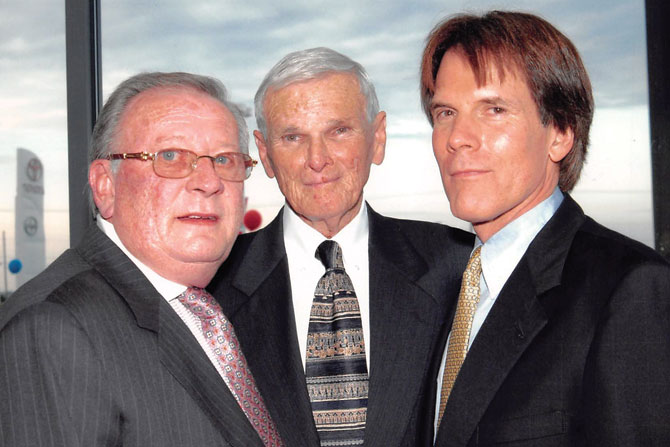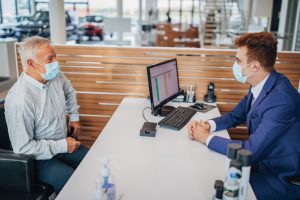By KADA
KADA is proud to recognize Steve Gates, a KADA member and the 2021 AIADA chair. During a recent interview for the KADA magazine, Steve talked about a wide range of subjects.
Career Background
Steve never wanted to do anything else than be in the car business. Like many dealers, becoming a dealer was a natural choice because his father and grandfather were in the car business, too. On the other hand, Steve’s mother wanted him to be a doctor, but both his parents embraced his career path.
When Steve was asked to compare running a dealership to practicing medicine, he said, “Car dealers are held to a different and higher standard. If you have to go back to a doctor after a bad diagnosis, you will not demand that you get a refund for your last visit. People know bodies are complex, and they understand doctors don’t necessarily get the diagnosis right the first or second time. But the people who come to us are our guests. That’s a big difference. We want to develop a relationship with them. Guests expect you to get things right the first time, say thank you and be kind. They also expect clean waiting rooms, refreshments and (before the pandemic) current magazines to read. You don’t get that from a doctor’s office.”
Steve’s degree is in radio and television; the field is currently called communications. He thought for a while about producing documentaries, and he also got politically involved. Early in Steve’s career, he had an unglamorous job at a radio station doing public service spots during the middle of the night. Making documentaries was a long way in the future, and Steve just loved cars. He didn’t know whether he would be successful, but he wanted to be close to the auto industry. “Being a manager would have been enough for me,” said Steve. “We don’t all get the opportunity to do what we love, but I did.”
Mentors
Steve’s two favorite mentors are his father, Bud Gates, and Bob McKamey, a dear friend of Steve and Bud. “They were both great guys who loved this business,” he said.
Bob, who died in 2018, was the first chair on the Toyota National Dealer Council in the 1970s and served many other times, too. He also started Toyota Dealer Advertising Association (TDA), was the AIADA chair and was chair for the Americans for Free International Trade (AFIT-PAC). “I worked for and with Bob. I didn’t set out to do all the same things Bob did,” said Steve, “but it just happened that I emulated his career. Bob bought the store in Richmond, Kentucky, where I am today. It was losing money and was a terrible place. He was scared, talked to my dad, and my dad told him to call me. We stood together and supported each other. Even though I didn’t inherit my dad’s dealership, he did give me a dealership in a way by putting me together with Bob.”
Like Bob, Bud served on the Toyota National Dealer Council. He was a brilliant man who trained as a lawyer and had “unbelievable breadth of knowledge,” said Steve. “He read everything about everything. He gave me a thirst for knowledge and a love of reading. You can’t have a better gift than that.” Although Bud’s dealership went out of business, he stayed in the industry and ultimately went to work for Bob. Bud died in 2015. Both men encouraged Steve to follow his passion and gave him the freedom to make his own decisions. “They supported me and gave me credit when the decision was good and counsel when I didn’t exactly do the right thing,” Steve said. “I think I just learned from example.”
KADA has benefited Steve in other ways, too. “KADA offers a lot for its member dealers,” said Steve. “Its help is not limited to government outreach. They become a great partner. They offer classes, they have a fabulous legal staff, and they just really understand our business.”
Association Benefits
Steve credits KADA with teaching him the importance of working with the government. As Steve puts it, successfully operating a dealership takes more than great people and great cars. A dealership’s destiny is often in lawmakers’ hands, so dealers must be knowledgeable, conversant, and willing to talk to legislators and teach them something about the business.
That reality is what first drove Steve to get involved with KADA and, later, AIADA. In 2009, Toyota was falsely accused of building cars with sticky pedals that caused people to accelerate unintentionally. As reported by Malcolm Gladwell, the problem wasn’t the cars or their pedals. People thought they were pressing the brakes because they were unfamiliar with the cars they were driving or were confused. Instead, they were flooring the accelerator. “Toyota dealers didn’t have the relationship they needed with legislators to get support, locally or on the federal level,” said Steve. “That was sobering. Whether or not legislators would have agreed with our position, at least we could have talked. But I couldn’t reach out to anyone who would listen to me.”
KADA has benefited Steve in other ways, too. “KADA offers a lot for its member dealers,” said Steve. “Its help is not limited to government outreach. They become a great partner. They offer classes, they have a fabulous legal staff, and they just really understand our business.” He sees associations like KADA as indispensable to the industry’s success. It is a full-time job to keep up with the legislature and regulations being implemented by commissions and different government branches. “KADA doesn’t just monitor; they also interpret what is happening, so we know how to react,” said Steve.
The Pandemic
The pandemic affected Steve personally. Starting Dec. 26, 2020, and through the end of January, Steve was sick and was hospitalized for 12 days. “I am an evangelist for social distancing, masks and the vaccine,” he said. “But I can’t get vaccinated yet. It would put me back in the hospital, and right now, I don’t even drive by the hospital because I don’t want to be in one.”
On a professional level, Steve said he and other car dealers learned a lot. The first hurdle was doing business online and virtually. Dealerships went the extra mile on keeping facilities clean, had a heightened awareness of personal hygiene, and employees learned how important they were to each other as an organization. “Nobody knew early on what the chances of survival were for our industry,” said Steve. “We had to rely on one another more than ever before. As the pandemic subsides, we can’t forget the lessons we learned about taking care of one another.”
As the pandemic ends, Steve is concerned about interruptions to the supply chain. For example, semiconductor shortages affect manufacturers who are building car computers, and petrochemical shortages mean there isn’t enough foam for new car seats. Inventory shortages inevitably result.
In contrast, dealers are in a fabulous position to have a great year because of pent-up demand. “People have been saving money, interest rates are low and there is a lot of new technology in vehicles. The new technology makes them safer,” said Steve. “People are anxious to be able to buy new cars and to get out for personal interaction. We sold cars virtually during the height of the pandemic, and that will be a component of our business forever, but we’ve missed the social component in our lives. People say they want to ‘get tires,’ but they actually want to visit.”
Before the pandemic, people were talking a lot about car sharing. That’s gone away, but the underlying reasons for it have not, such as reducing pollution and freeing up land in high-density cities. Steve thinks it will be a long time before car sharing becomes important again. “In smaller communities, people want personal transportation. It seems to have been more important in big cities with very dense populations,” said Steve. “I have three millennial daughters with young children, and I am pretty sure that after the pandemic, they will never consider car sharing. It doesn’t make sense to them.”
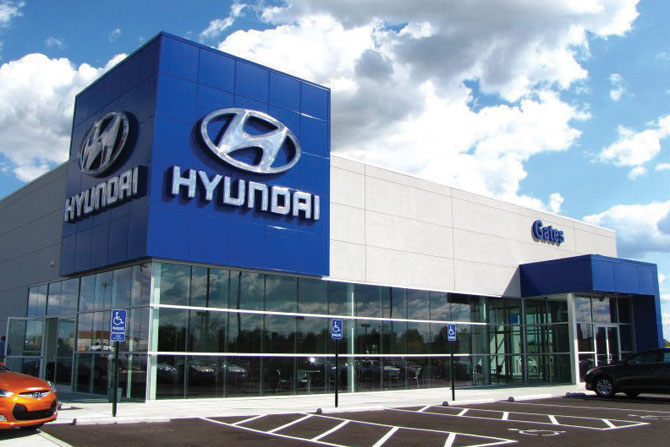
The Auto Industry’s Future
As Steve looks at the auto industry’s major upcoming changes during the next 5-10 years, he is concerned that some manufacturers will question whether reliance on the franchise system still makes sense. Tesla and new startups like Rivian, Lordstown Motors and Lucid Motors have sales models that are all direct to the consumer. “Direct sales sound like a good idea, but again, people need and want face-to-face communication,” he said. “They want access to recall information and advice they can trust. Our traditional manufacturers spent decades perfecting manufacturing. Dealers spent generations getting sales just right. We work best together when we complement each other.” He is critical of companies that don’t invest in their communities. “The big companies won’t sponsor the Little League team, and they won’t employ as many people. Dealers employ thousands. Companies like Carvana and Vroom don’t.”
Steve knows new powertrains are on everybody’s mind, and he thinks we all have a responsibility to protect and improve the environment. “EVs get the most press,” he said, “but EVs are not right for everybody. Hydrogen is probably the more valid solution to greenhouse gas pollution. Tax incentives should be extended to all forms of electrification on a state and federal level. That means hybrids, plug-in hybrids, pure EV and hydrogen. We need to try and work with Congress to make sure that all of the powertrains are recognized as vital and help Congress understand they all deserve tax incentives.”
Hydrogen cars haven’t gotten the same press as EVs, but they are selling in the ZEV states, especially California. For example, the Toyota Mirai has a 600-mile range and can be filled up in 5-6 minutes. The exhaust is water. Steve sees EV as an interim step toward hydrogen-powered cars. “Hydrogen will be viable,” Steve said. “Honda, Hyundai, Kia, General Motors and Ford have all been working on it. But lack of infrastructure is holding back development for all these alternative vehicles.”
An aging power grid poses a particular problem for EVs. “We saw it in Texas in February 2021. People with electric cars were stranded. Also, charging is slow. It takes a long time to charge with a 110-V outlet, although Tesla does have a rapid charger,” he said. Steve doesn’t think it will be possible to solve the problem individually, either. “Getting solar panels and battery backup isn’t possible for everybody; I live in a house that was built in the 1900s with a pitched slate roof. I could not even remotely put solar panels on my roof.”
He hopes the Biden administration will dramatically expand the charging infrastructure for EVs; if it does, the expansion will make things easier for drivers. Still, charging stations don’t solve the aging power-grid problems, and Steve thinks the U.S. needs to think more about hydrogen. “If we really do get to the point where we are adding all these power stations, we have to think about hydrogen. Big trucks need it: they are huge polluters. Fortunately, there are already commercial semis in testing that have hydrogen power trains.”
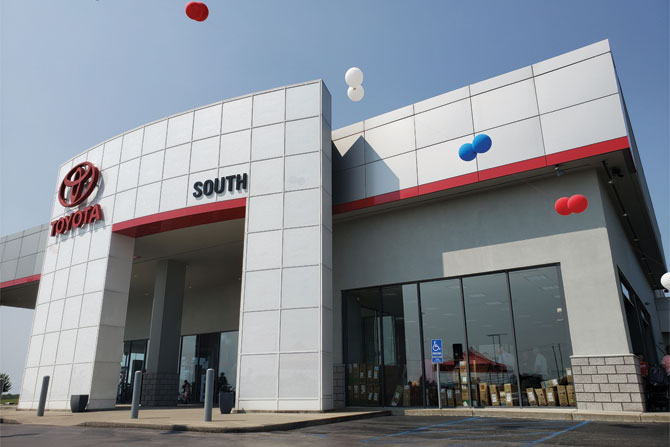
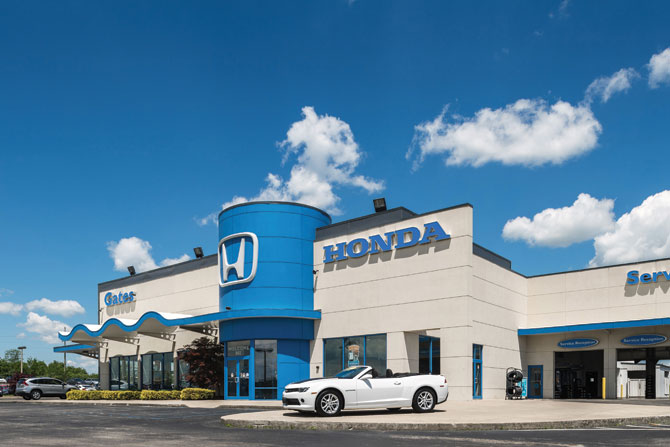
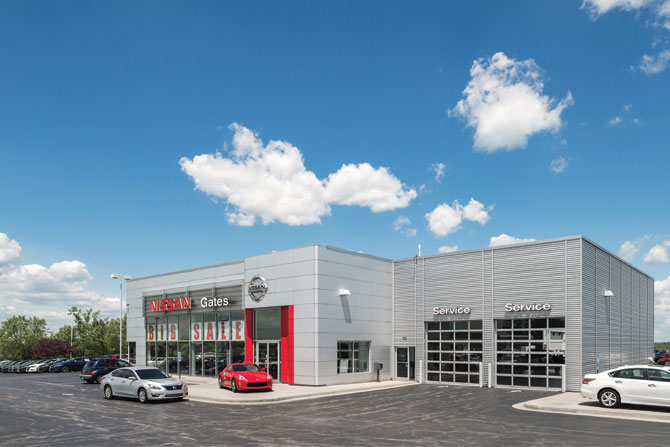
Absent that infrastructure, Steve has doubts about EVs. “You can’t count on pure electric. The battery is affected by hot and cold weather, and if you get in an accident or get stuck, even 500 miles worth of charge can disappear pretty quickly, especially if you have heat and want a radio. My brother rented a Tesla Model S in Denver for us to drive to Aspen. Interstate 70 was closed. I thought for sure we would run out of charge, and I had no idea what to do. It worked out, but I was worried about it.”
He sees plug-in hybrids as the more reasonable choice at this point. “I drive a RAV4 Prime. The pure electric part of a plug-in hybrid works for short commutes, and if you get out on the open road, you have internal combustion, so you have no range anxiety. And cars with internal combustion engines are very efficient now. They are not big polluters; everything gets pretty good gas mileage these days.” Another new choice, Ford F-150 hybrid trucks, are a further indication of the changes to come.
Ultimately, Steve says, “manufacturers will build and sell what people want, whether it is EV or hydrogen or anything else.” The current market share is only 2%. Some of that has to do with availability, and the other part has to do with cost. “EV and hybrid technology are just more expensive,” he said. “The difference in powertrain between a gas engine and a hybrid may only be $800-$1,000. A rough estimate for a plug-in hybrid adds another $4,000 on top of that $800-$1000. Full electric could add another $3,000-4000 on top of $4,800-$5,000, which means the price might total as much as $9,000 more than for a similarly equipped internal combustion vehicle. Even if all the extra cost only makes a $20 difference in the monthly loan, $20 matters. The supply has to be affordable.”
Since the government will always be involved in the auto retail industry, Steve thinks dealers need to work with them toward standardizing manufacturer regulations. “It does not work to have one set of regulations for California and another for Kentucky. Manufacturers can’t survive if they can’t sell in California, and having multiple standards is unreasonable. Even if California standards are adopted, which may be, we should all have to live by the same rules,” he said.
One way electric cars will affect dealerships is to make service departments less profitable, and Steve has the same healthy concerns about that as other dealers. He pointed out that service departments are filled beyond capacity right now, and many need more space. “I don’t know if it makes sense to build or add on,” he said. “If the EV business is 10%-15% by 2030, then it would be a mistake not to add on. If it is 50%, then it would be a mistake. But nobody knows. News media and the government are overstating how many EVs will be on the road by 2030; EVs have a long way to go. Europe will get there first. In Europe, and perhaps in China, the law seems pretty clear that manufacturers won’t build combustion engines after 2035, so dealers in Europe have a better understanding of their future.”
Despite the uncertainty, Steve is confident that dealerships will adapt. “This is another lesson from the pandemic. We can meet the challenges because we’ve already learned how to pivot,” he said.
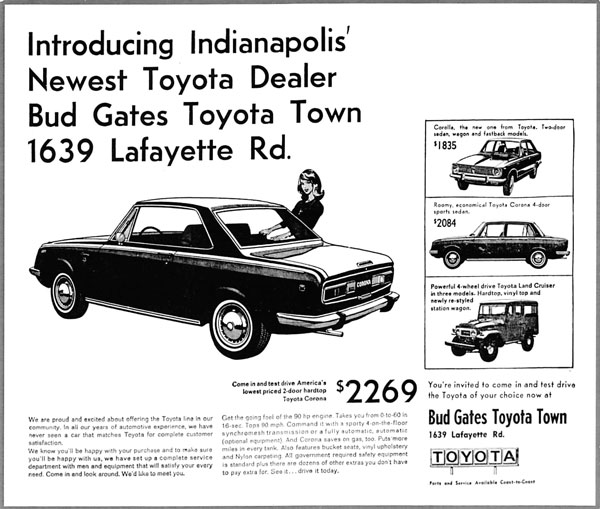
At the same time, the business model won’t stay the same. “If BEVs represent the majority of our sales, we will be more reliant on gross profit on sale as opposed to negotiation because income from parts and service may decline. We may have to go to one nonnegotiable price where the only variable will be the trade-in value,” he said. “Direct-sale manufacturers like Tesla will have a hard time with that because they don’t do well on trade-ins, leasing or finance options.”
Diversity
Steve’s family is doing its part to increase industry diversity. Two of his daughters are in the business. “It’s a start,” he said. “They are so much smarter than I am, and they have found a work-life balance that I was never quite able to work out. They accomplish a lot more in a shorter day than I did and do.”
Steve thinks dealership employees should look like the people they serve. That has been a difficult goal because it is tough to recruit women and people of color, especially in small communities. “That’s a real big challenge for me and our industry,” he said. “I will just keep working on it.”
Technician Shortages
Steve recognizes how hard it is to find and retain technicians. “Being a technician is a tough job,” said Steve. “The work is hard on the technician’s body. You have to stand on concrete and lift heavy tires quickly. I can barely do that slowly. Also, you have to master the electronic side. At the beginning of my career, everything was mechanical. Now the electronics almost require a Ph.D. It’s a very complicated profession, and the shortage is absolutely a concern.”
The shortages aren’t limited to technicians. “We’ve pushed too hard for the white-collar jobs,” said Steve. “All the trades have the same issues: HVAC, plumbing and electrical. I understand it in theory, but in reality, what a mistake.”
Manufacturers are working with dealers to find technicians, but the only successful way to solve technician shortages is through mentoring programs that recruit men and women. “Some dealers make the mistake of always looking for guys,” said Steve. “We hire people at a little higher pay scale than the Jiffy Lube around the corner and have them start by changing oil. If they do their job well, we take the responsibility to train them over time until they become a full-fledged master technician.” One key part of the mentoring program is buying the tools for dealership technicians. That helps; it’s no secret the tools are extraordinarily expensive, and not everyone can afford them.
The Biden Administration
Steve is still unsure about the direction the Biden administration will take, but he thinks it will reenergize the Consumer Finance Protection Bureau (CFPB). He sees a possible move from compliance to enforcement, and he thinks that would be a mistake. “When governments don’t understand issues, they overreach,” said Steve.
Steve is very hopeful that the Biden administration will embrace free trade, but he is concerned about emphasizing union jobs instead of American jobs. “Most of our international nameplate dealers sell cars that the manufacturers build in the U.S. The manufacturers employ thousands and thousands of Americans in nonunion jobs. Those jobs should just be characterized as American,” he said.
Tax changes are also coming. “We want to try to protect things like LIPO accounting, which is a big deal to our industry and others, and we are concerned about laws that would affect estate planning,” he said.
Estate planning is an issue because of taxes. “Although estate taxes are pretty low right now, there was a time where estate tax was as high as 90%,” said Steve. “Suppose my daughters want to stay in the business when I retire. If taxes usurp my estate, the businesses would have to be sold. This problem isn’t unique to our business. Family farms have the same problem. To me, this isn’t an AIADA stance. There shouldn’t be a tax on estates. Everything I own has been paid with after-tax dollars. I think it is double taxation. I should be able to give everything I want to my daughters without any tax.”
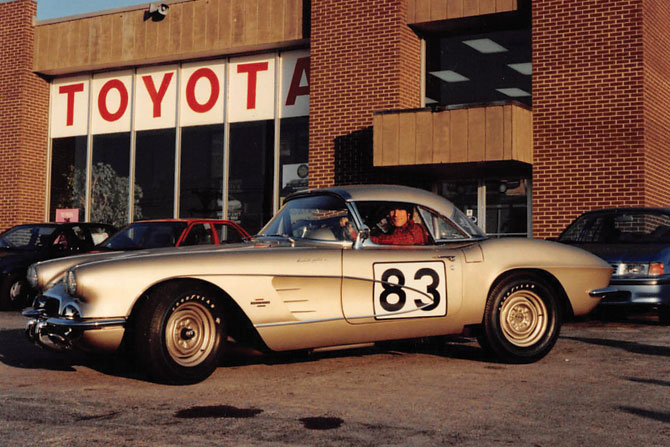
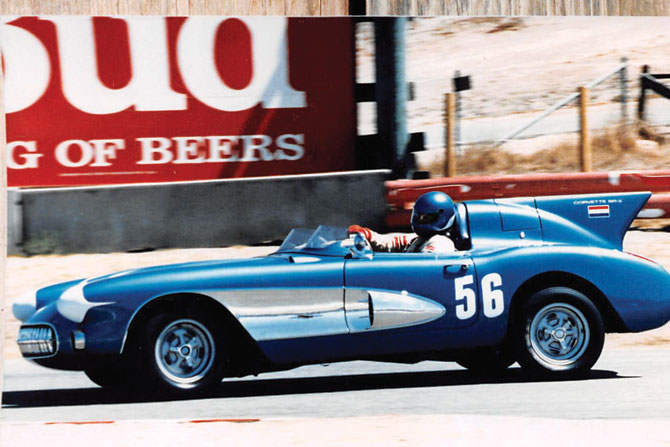
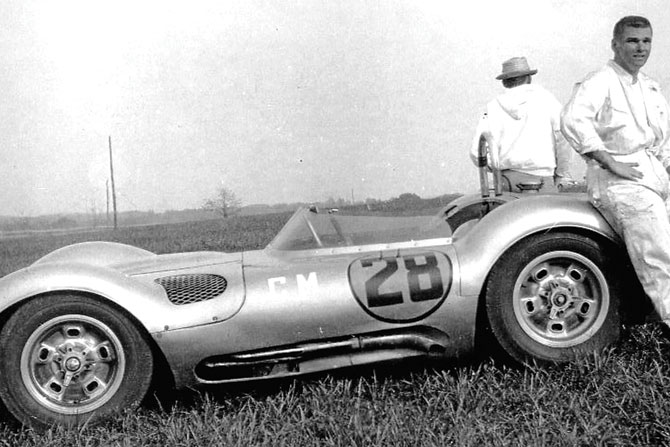
On the Personal Side
Steve races cars every chance he gets. “I am not very good,” he said, “but I am always the one who is having the most fun. My dad was a really great racing car driver. He drove with many of the legends of auto racing. I get to be around some of the current legends, but we are definitely not on the same level.”
He is also a devoted grandfather. “Most grandparents say the same thing,” he said, “but I love spending time with my grandchildren. I am young enough and healthy enough to be on the floor with them, to run and keep up with them. My athletic skills haven’t declined so much I can’t play baseball or football. I also enjoy watching my children be great parents. For all my mistakes, and I made a lot of them, they turned out great. I am very proud of them. The pandemic reminded me that nothing is more important than your family — your biological family and also your work family.”
Steve enjoys reading and loves learning about U.S. presidents. “I will occasionally dive in and read a quick mystery, but I like nonfiction the most,” he said. He recommends Robert Caro’s four books about President Lyndon Johnson.



